The Art of Service Symphony: Harmonizing Customer Satisfaction and Operational Excellence

Understanding the Role of Service Advisors in 2025
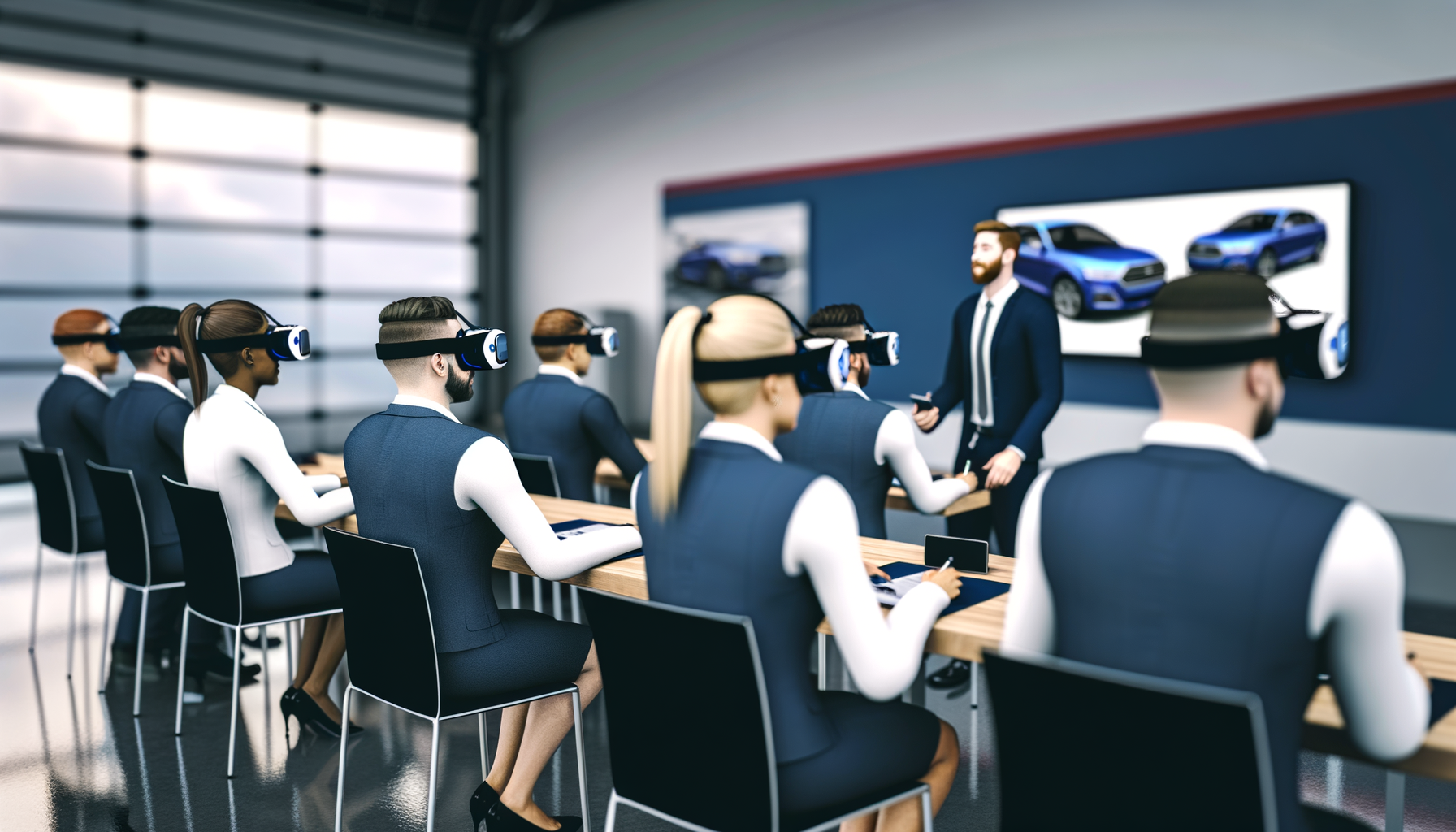
Service advisors are the linchpin of customer satisfaction and service department efficiency. As the automotive landscape evolves, their role has expanded to include upselling, managing digital interfaces, and ensuring seamless service delivery.
With the shift towards more complex vehicle technologies, including a 15% increase in EV-related repairs, service advisors need to become more technically proficient and customer-centric.
To prepare them for these multifaceted roles, dealerships must focus on comprehensive training that encompasses technical knowledge, communication skills, and customer relationship management.
Key Components of a Successful Training Program
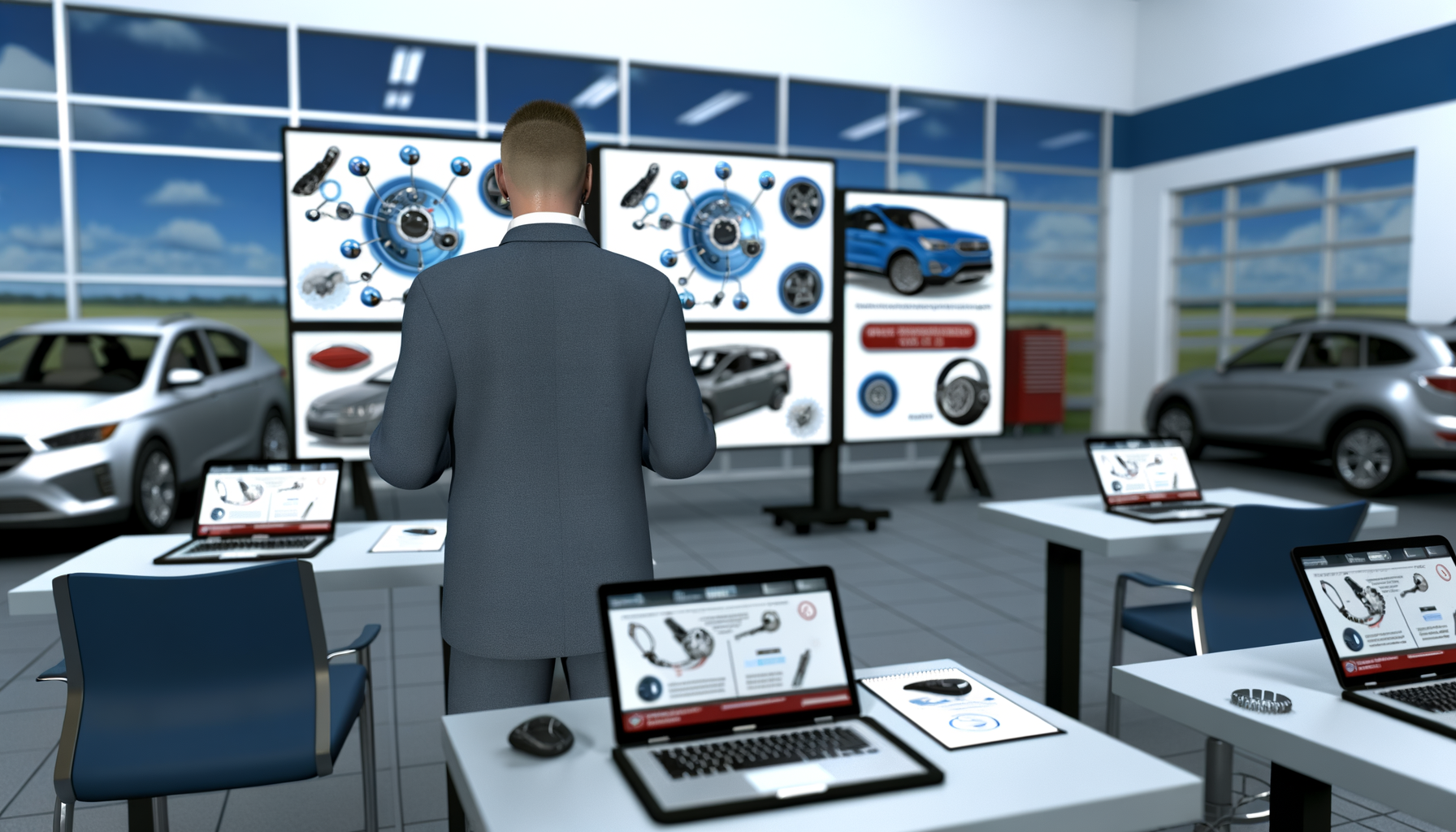
A successful service advisor training program in 2025 must be dynamic, incorporating both traditional and digital learning methods. This blend ensures advisors are equipped with the necessary skills to meet modern customer expectations.
Key components include role-playing scenarios, technical workshops, and digital modules that focus on the latest industry standards and technologies, such as OEM requirements.
Step-by-step, service managers should design training schedules that integrate regular assessments and feedback loops, allowing advisors to learn and adapt in real-time.
Leveraging Technology for Enhanced Training
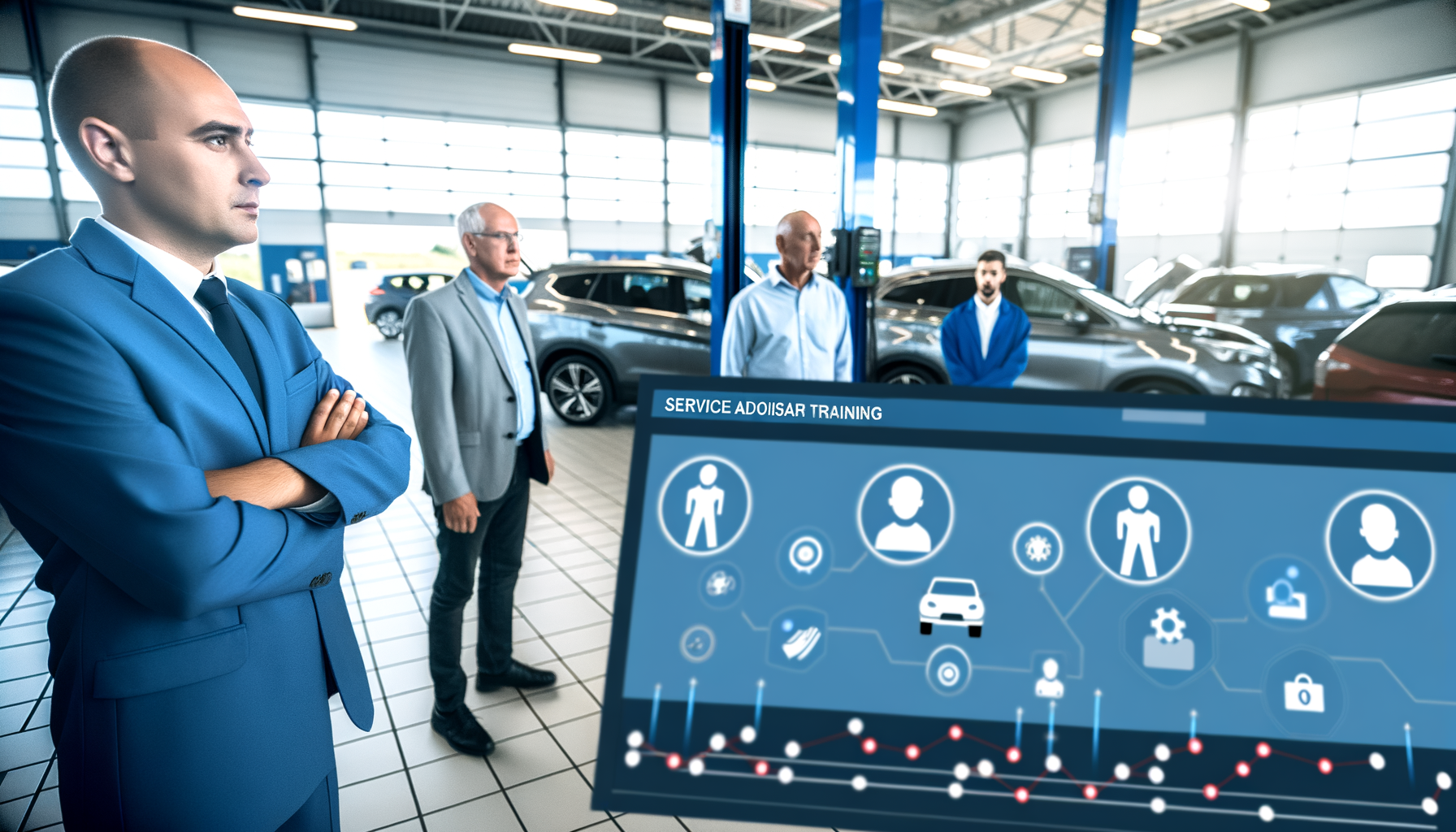
Incorporating cutting-edge technology into training programs not only enhances learning outcomes but also prepares advisors for a tech-driven service environment. Tools like digital scheduling platforms are crucial, given that 68% of customers prefer digital interactions.
Utilize training automation software to track progress and personalize learning experiences. Additionally, incorporating AI-driven analytics can help identify areas for improvement and tailor training content accordingly.
Dealerships should also consider virtual reality (VR) for immersive training experiences that replicate customer interactions and service scenarios, offering advisors hands-on practice in a controlled environment.
Measuring Training Effectiveness and ROI
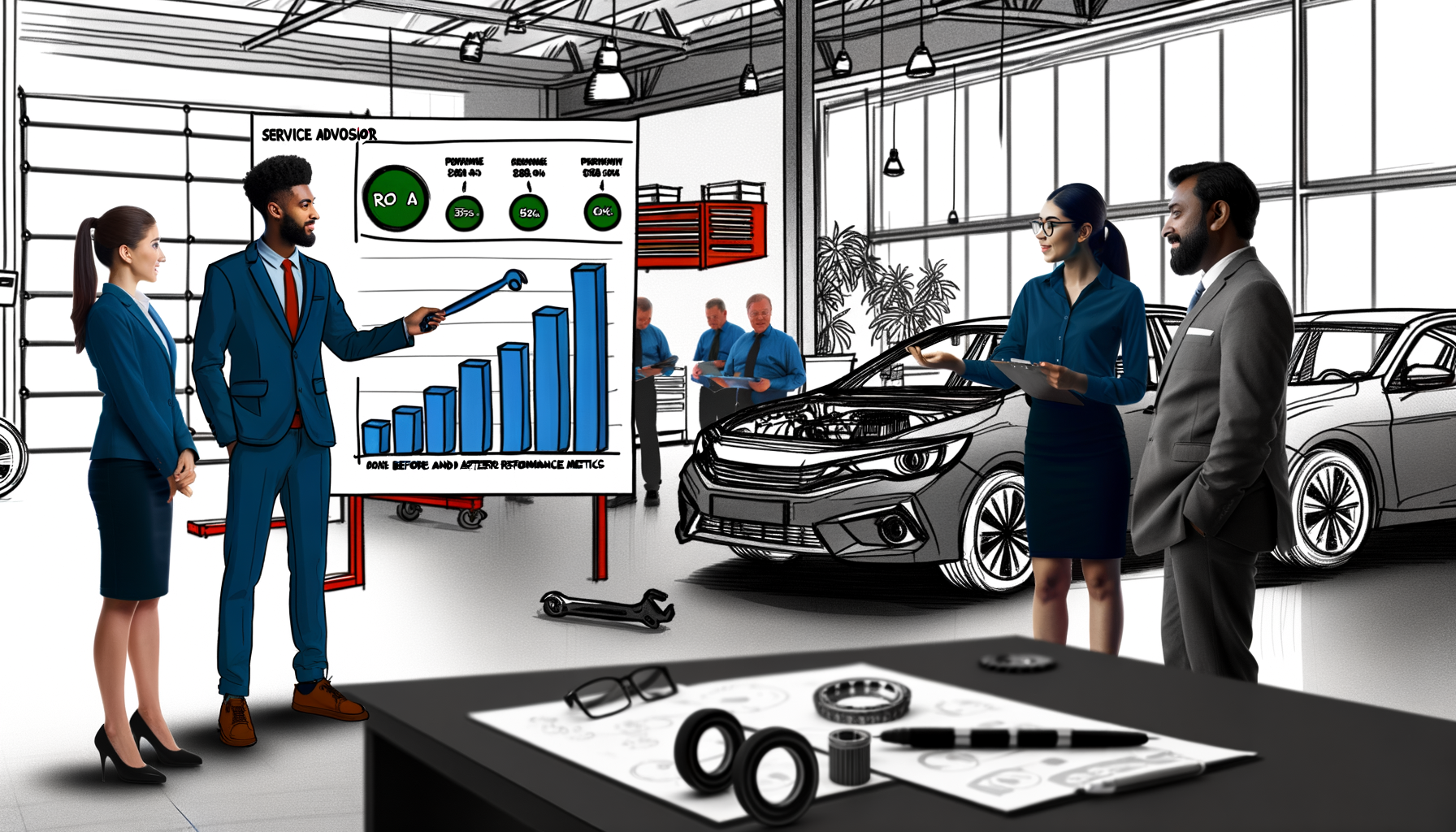
Measuring the success of a training program is crucial for continuous improvement and justifying investment in training resources. Establish clear metrics such as customer satisfaction scores, upsell rates, and service efficiency improvements.
With tools like Auto Pro Solutions, managers can easily track these metrics and generate reports that highlight training impact, allowing for data-driven decisions.
Regular evaluation sessions should be held to discuss performance data and adjust training strategies accordingly, ensuring alignment with dealership goals.
Addressing Common Training Challenges
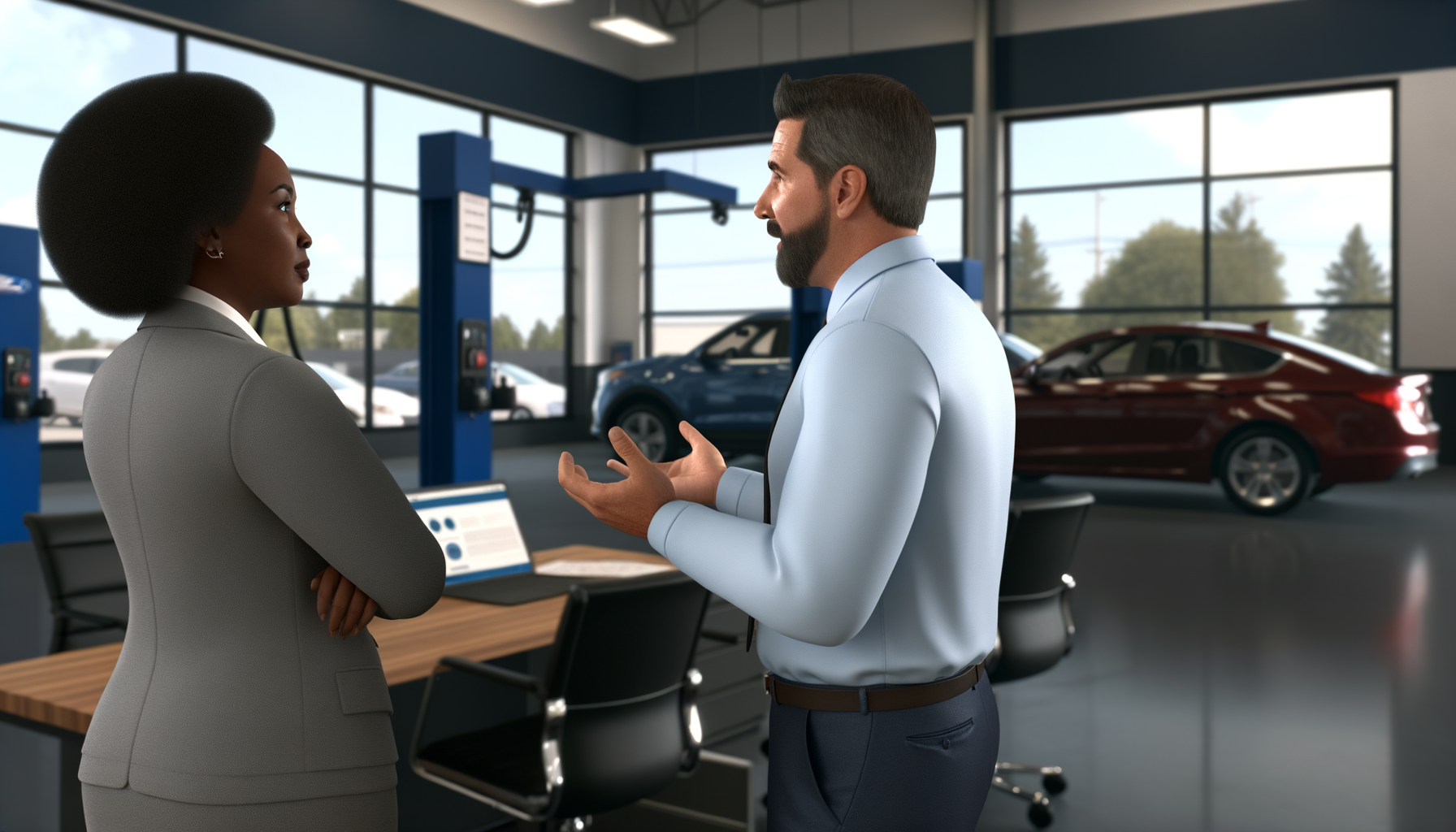
Service departments often face challenges such as high turnover, varying skill levels, and resistance to change. Address these by creating a supportive training environment that encourages continuous learning.
Utilize peer mentoring programs where experienced advisors assist newcomers, fostering a culture of knowledge sharing and collaboration.
Implement feedback mechanisms where advisors can voice concerns or suggest improvements, creating a dynamic and responsive training ecosystem.
Fostering Continuous Improvement and Growth
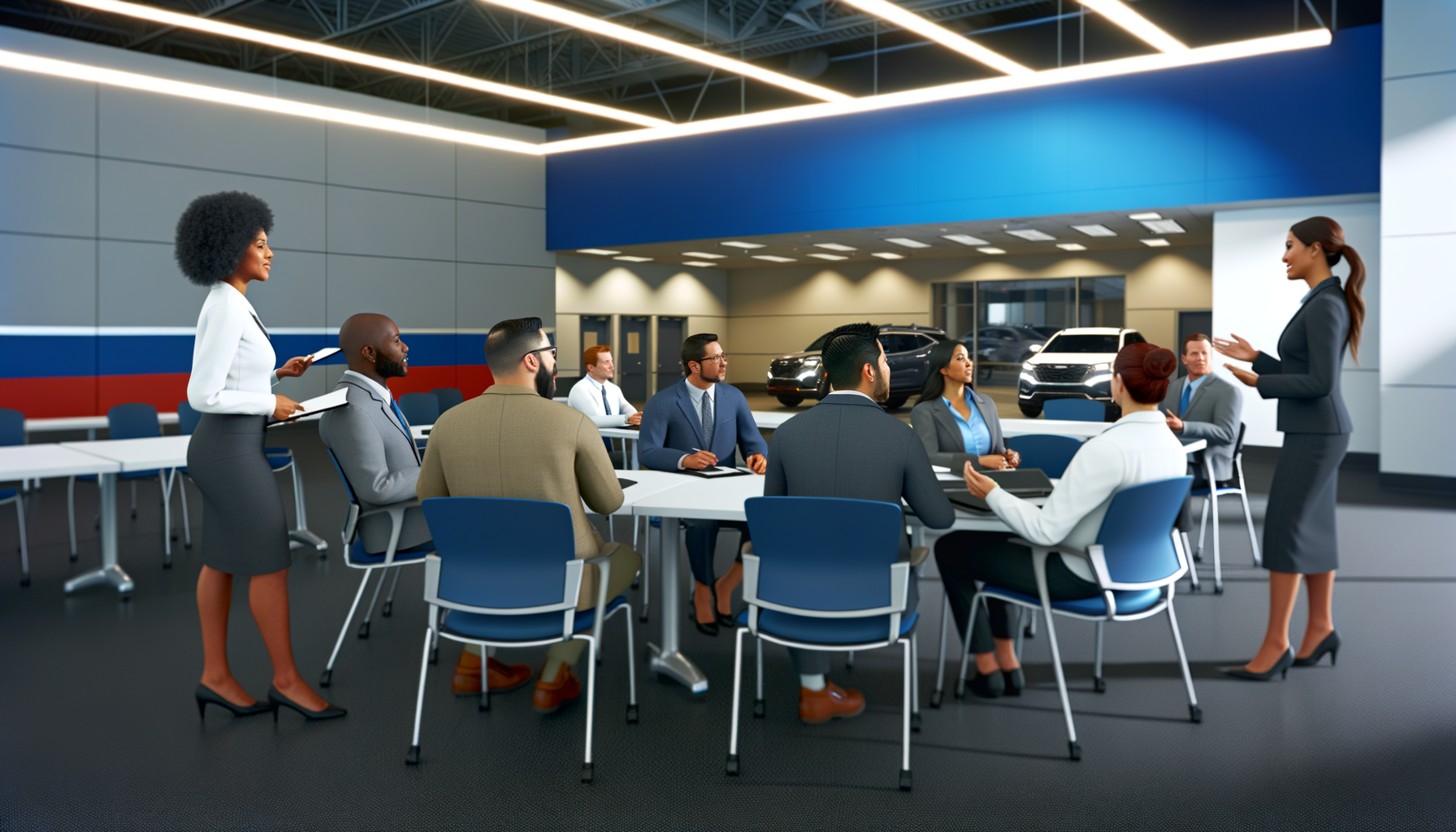
To maintain a competitive edge, dealerships must cultivate an environment of continuous improvement. Encourage advisors to pursue additional certifications and provide incentives for skill development.
Regularly update training content to reflect the latest industry trends, such as new OEM requirements and parts shortages impacting service operations.
Create a development plan for each advisor, outlining clear career progression opportunities and aligning with their personal goals.
Related Topics
Ready to take your service department to the next level?
Schedule your demo today and experience the power of Auto Pro Solutions.
Schedule Demo